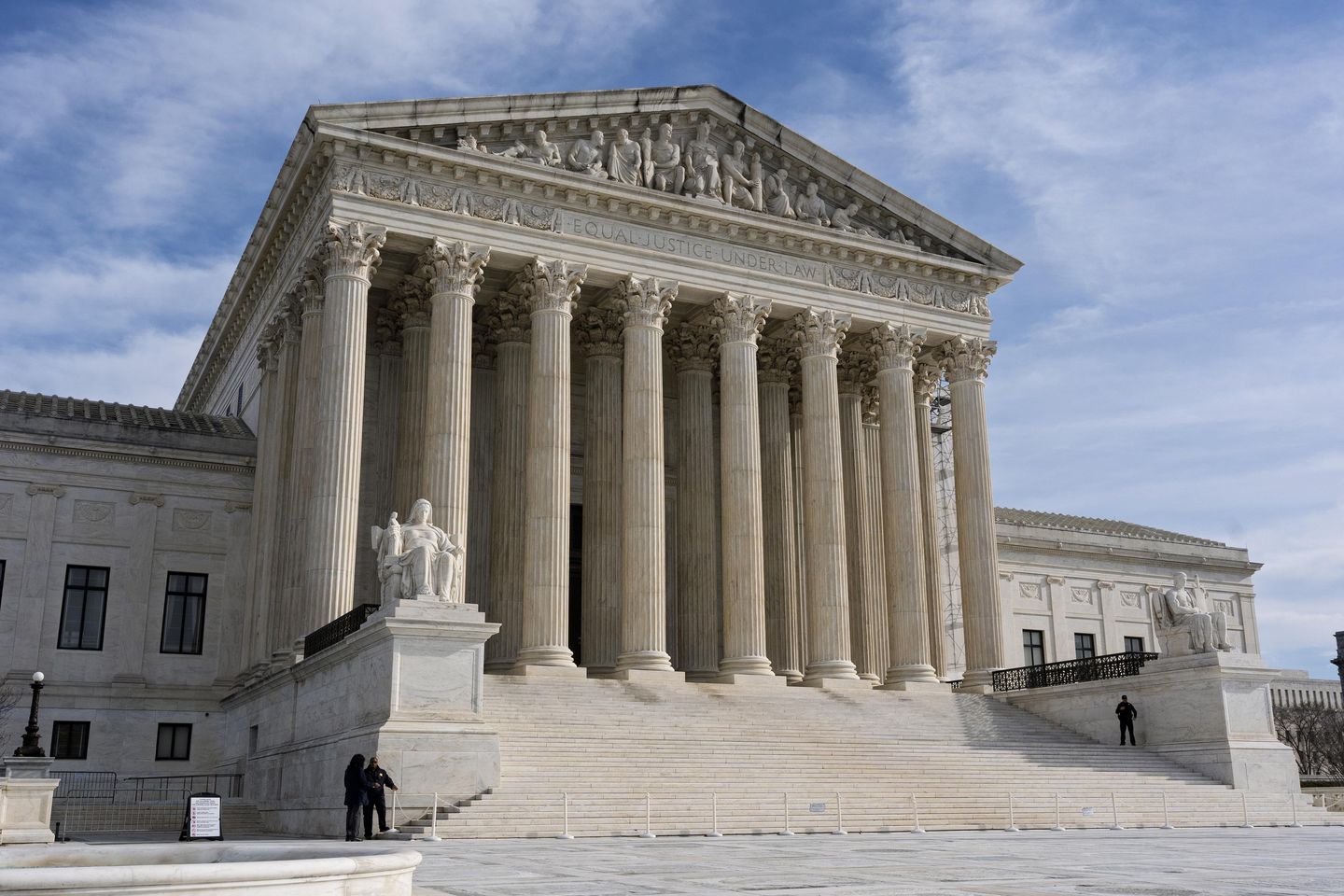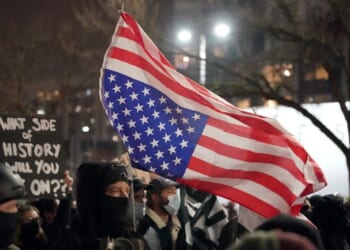
The Supreme Court waded even more deeply into President Trump’s immigration powers this weekend by ordering an emergency halt of deportations to El Salvador under the Alien Enemies Act as the justices signaled a striking willingness to referee administration actions.
Justice Samuel A. Alito Jr., who dissented, called his colleagues’ intervention “unprecedented.” He said they broke their rules governing when to hear a case so they could issue an emergency blockade against Mr. Trump.
In an unsigned directive, the court ordered the administration not to touch a group of Venezuelans who argue they are being sent to a staging point in Texas in preparation for being deported to El Salvador, where the U.S. is paying the government to hold people America deems “terrorists” by dint of suspected gang ties.
“The government is directed not to remove any member of the putative class of detainees from the United States until further order of this court,” the majority said.
It offered no reasoning in the brief statement other than citing the court’s power under the All Writs Act.
The case is the latest to test Mr. Trump’s powers under the 1798 law he is using to bypass the regular immigration system and speed deportations of people the government says are members of MS-13, an El Salvador-based gang, or Tren de Aragua, based in Venezuela.
The government has declared both gangs to be terrorist organizations.
The American Civil Liberties Union rushed to the high court Friday after saying it had learned that the government was moving Venezuelan men from other detention facilities to a single site in Texas.
ACLU attorneys said the Trump administration wasn’t giving the men enough chance to challenge their deportations under the Alien Enemies Act.
A district court had put the case on hold, saying the government agreed not to deport the named plaintiffs. The 5th U.S. Circuit Court of Appeals was still considering the matter when the ACLU pleaded for the justices’ intervention, and the high court delivered.
Justice Alito, who dissented along with Justice Clarence Thomas, said the court didn’t give the Trump administration a chance to make its arguments before ruling for the ACLU.
He pointed out that the Supreme Court ruling applies to an entire class of migrants, even though the lower courts haven’t even approved the class action claims certifying the existence of a distinct class of similarly situated migrants.
“In sum, literally in the middle of the night, the Court issued unprecedented and legally questionable relief without giving the lower courts a chance to rule, without hearing from the opposing party, within eight hours of receiving the application, with dubious factual support for its order, and without providing any explanation for its order,” Justice Alito wrote.
He said the administration must follow the law but the court has an obligation to “follow established procedures.”
Josh Blackman, a professor at the South Texas College of Law, called the court’s action a “fly-by-night operation.”
Writing at the Volokh Conspiracy, a prominent legal blog, he said Chief Justice John G. Roberts Jr. is allowing the court to veer into a constitutional confrontation with the administration through its haphazard intervention.
“If Chief Justice Roberts doesn’t want his rulings to be ignored, then this decision is a terrible way to proceed,” Mr. Blackman wrote.
It is not the first time the justices have dealt with Mr. Trump’s deportations to El Salvador.
Last month, the administration sent three planeloads of MS-13 and Tren de Aragua suspects to that country.
After Judge James Boasberg scolded the administration for flying the planes despite his orders to ground them, the justices stepped in and ruled that the judge didn’t have jurisdiction.
However, they also ruled that deportees under the Alien Enemies Act deserve a chance to challenge their detentions and deportations in federal courts. The justices said potential Alien Enemies Act deportees were also to be given reasonable notice so they could bring their challenges.
The ACLU said that didn’t happen in the case of the migrants being staged for deportation.
“The government’s actions to-date, including its lightning-fast timeline, do not give members of the proposed class a realistic opportunity to contest their removal under the AEA,” said Lee Gelernt, an attorney for the ACLU.
Solicitor General John Sauer, when he was able to respond after the court’s action, asked the justices to cancel their blockade and allow the lower courts to handle cases in the usual fashion.
As written, the justices’ directive applies to Alien Enemies Act deportations and even those under the regular immigration system.
Mr. Sauer said that was too broad. He said the Supreme Court should at least allow the president to continue deportations of Venezuelans under the regular immigration law.
Venezuela, controlled by an adversarial regime, has been generally uncooperative in taking back its deportees.
The Trump administration has been searching for alternatives and has settled on El Salvador, where the U.S. is paying that government to hold Tren de Aragua gang suspects in its terrorist prison.
Sen. Chris Van Hollen, a Maryland Democrat who traveled to El Salvador to try to enter the Terrorism Confinement Center, or CECOT, said Friday that the Trump administration had paid $4 million and had a contract to pay $15 million total to El Salvador to hold the deportees.








